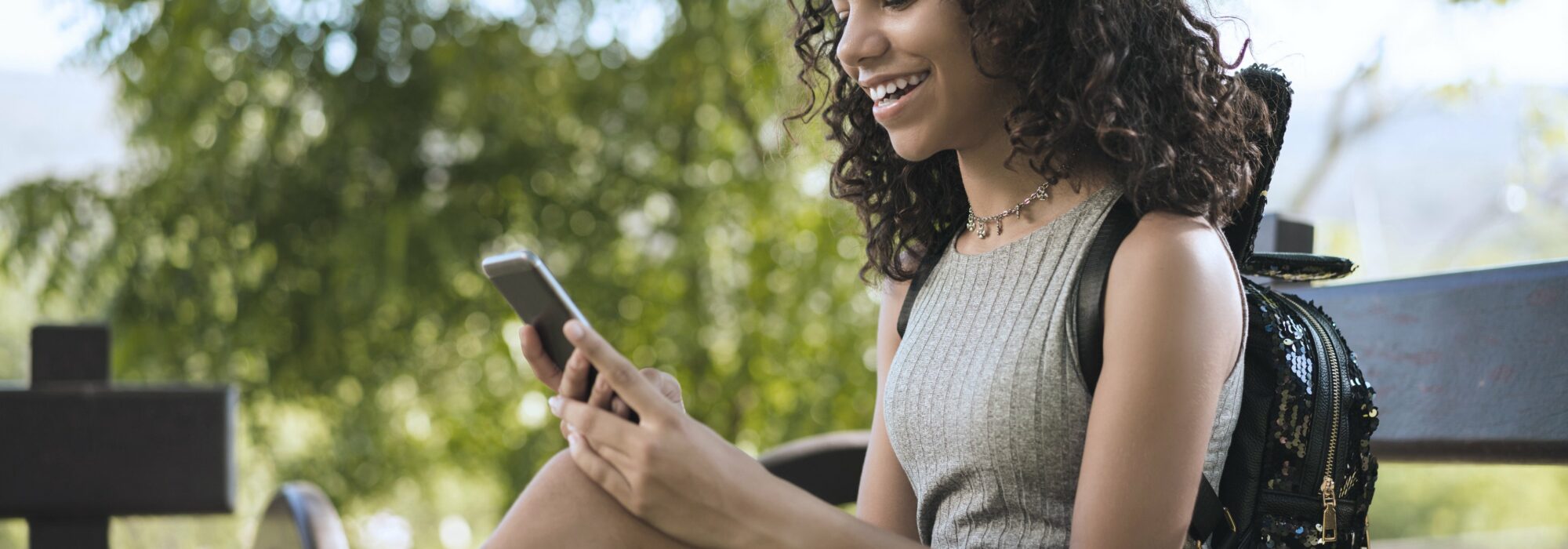
Digital-loving teens have hearing healthcare at their fingertips!
Through eAudiology services like Phonak Remote Support, teens, who often become resistant to wearing their hearing technology or regularly miss clinic appointments, can become reengaged with their own hearing healthcare.
Do you remember being a teenager? I was awkward and self-conscious, and truth be told, a bit nerdy, but what I wanted most at that time was to be ‘cool’ and accepted. I wanted to dress like my peers, talk like my peers, look like my peers, and felt like I wanted the earth to swallow me whole at the slightest deviation from any of these characteristics!
I also had severe FOMO – that is, a severe Fear Of Missing Out! Still do! I was never one to skip class or sport and clubs, because firstly, I was a goody-two-shoes, but mostly because I hated missing out on the fun, learning, social interactions and just the general happenings of any given day. Hence why I really empathised with my good friend, let’s call her Michelle, who struggled with her hearing and hearing aids daily.
Being a teen with hearing loss had its challenges
Classroom settings she had sussed! She sat in the front of classrooms and our teachers ensured work groups were small enough for her to participate fully and thrive in. Lunch breaks, sports fields, and swim lessons were all particularly challenging for her however due to the cacophony of teenagers excitedly talking over each other or whispering gossip in the corridors, the dissipation of sound across the sports fields, and the need to remove her aids during swim practice.
As if that was not hard enough, she regularly had to miss half of the lesson, game or social for being picked up halfway through the school day to attend appointments with her Audiologist. Of course, most of our friends used to envy her being able to leave early, but I remember her complaining about it from time to time, wishing she did not have to be singled out over the tannoy to “report to reception with her belongings”. She also complained that although her Audiologist tried hard to understand and adjust for her hearing struggles in her daily listening environments, there was just no way for her to fully replicate the noise levels and localization issues in her office in order to appropriately fine tune Michelle’s devices – and Michelle found it difficult to fully describe and define them herself.
How times changed!
While we were still in school, teenagers did not own their own mobile phones. Instead, we sneakily passed notes across the classroom to our friends on the other side whilst the teacher’s back was turned. However, nowadays, mobile phones serve not only as a way for teenagers to connect with their families and friends or express their identities through social media, but also as a way to connect to healthcare providers at a time and place which is convenient for them.
A recent project conducted in the United Kingdom explored the potential for using the Remote Support feature in the myPhonak app with teens. Their feedback, and that of the audiologists, was overwhelmingly positive, in that they felt relaxed during their sessions and that they received good care which met their needs. The project also demonstrated that through eAudiology services like Remote Support, teens, who often become resistant to wearing their hearing technology or regularly miss their clinic appointments, can become reengaged with their own hearing healthcare.
Convenience without compromising on quality
I only wish technology like this was available when we were teenagers. I know my friend Michelle would have much preferred remote sessions with her Audiologist over in-person clinic visits, as she would not have had to miss out on so much, and her hearing aids could have been quickly and appropriately adjusted in real-time in the real world.
References
Venkatesan, A. & Carr, G. (2019). Could teleaudiology be the answer for teens? Phonak Field Study. Retrieved from www.phonakpro/evidence https://www.phonakpro.com/content/dam/phonakpro/gc_hq/en/resources/evidence/field_studies/documents/fsn_pediatric_could_teleaudiology_be_the_answer_for_teens1.pdf
